Return to Blog
The New Style Grocery Store Popping Up in Los Angeles
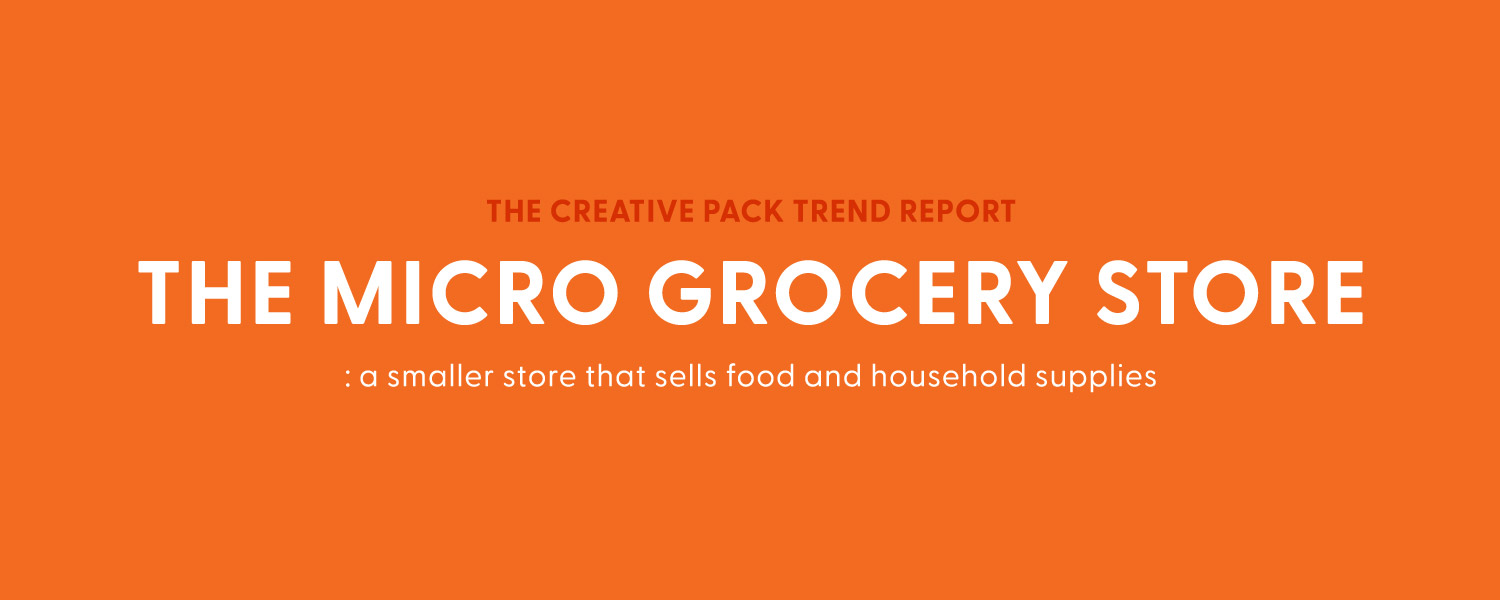
For me, going to a grocery store is not just pushing around a cart and checking off items on a shared notes app. It’s like walking through a museum, discovering the new items on the shelves and studying the products and their packaging to almost find its greater meaning. While taking my time studying the store is part of my job, my curiosity and passion stem beyond just someone in the industry, but also as a consumer, trend seeker and lover of the design in all forms. What better place than Los Angeles to get such a variety of markets to go to from Whole Foods, Ralphs, Trader Joes, Costco, and the ever trending Erewhon. We (the Los Angeles shoppers) see all the latest food products on the market whether it follow the vegan, keto, gluten free, or new and up coming flexitarian trend. And with new innovation within the food world also comes new innovation in packaging and branding. I am always trying to be on the cusp of what is new and trending.
A new trend with in the grocery industry has stemmed from what I call the “Erewhon model” but in a less corporate way. The micro grocery store, superette, or bodega are all names for this new style of niche grocery store popping up around different communities in Los Angeles. These stores can be as small as 250 square feet, but can easily supply you with your evening’s dinner.
It’s a concept that seemed to take off during the pandemic, and for good reason. While most industries struggled to stay alive, the grocery industry was booming – people cooking at home more and eating out less. This superette allowed people to not wait on long lines outside, be surrounded by less people and also support smaller business rather than the billionaires of other grocery chains. It also gave shoppers a new type of shopping experience – the “Erewhon model” of shopping – an aspirational environment that is thoughtfully curated with some products you know and love, and others that are brand new to market that one would want to buy just because of the impeccable packaging. Each of these new markets have their own spin on what a grocery store can be with their own voice, mission, and aesthetic. Though all unique, each one feels super intentional with each product being sold, which makes even their extra premium price points appear justifiable to your everyday consumer.
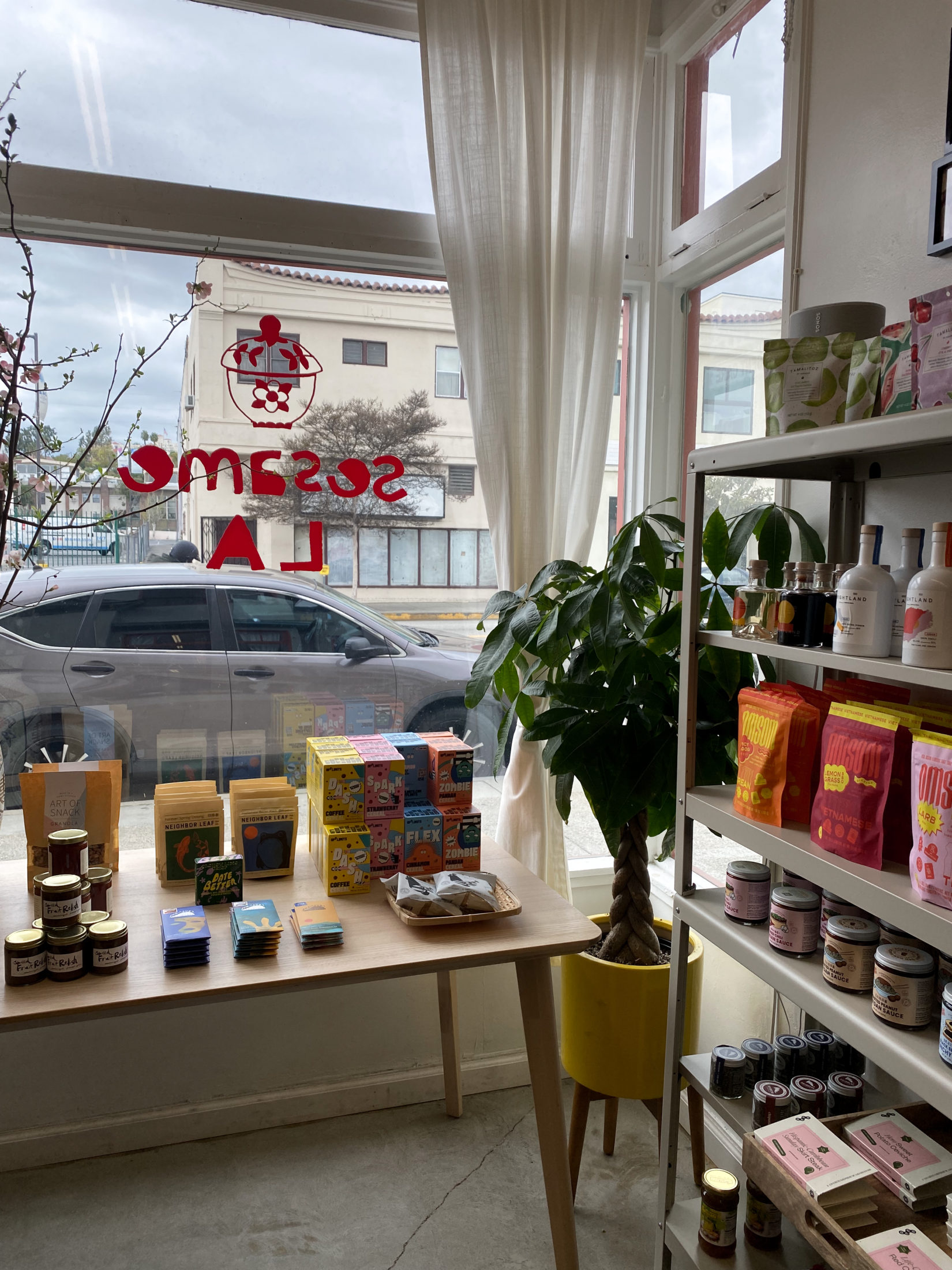
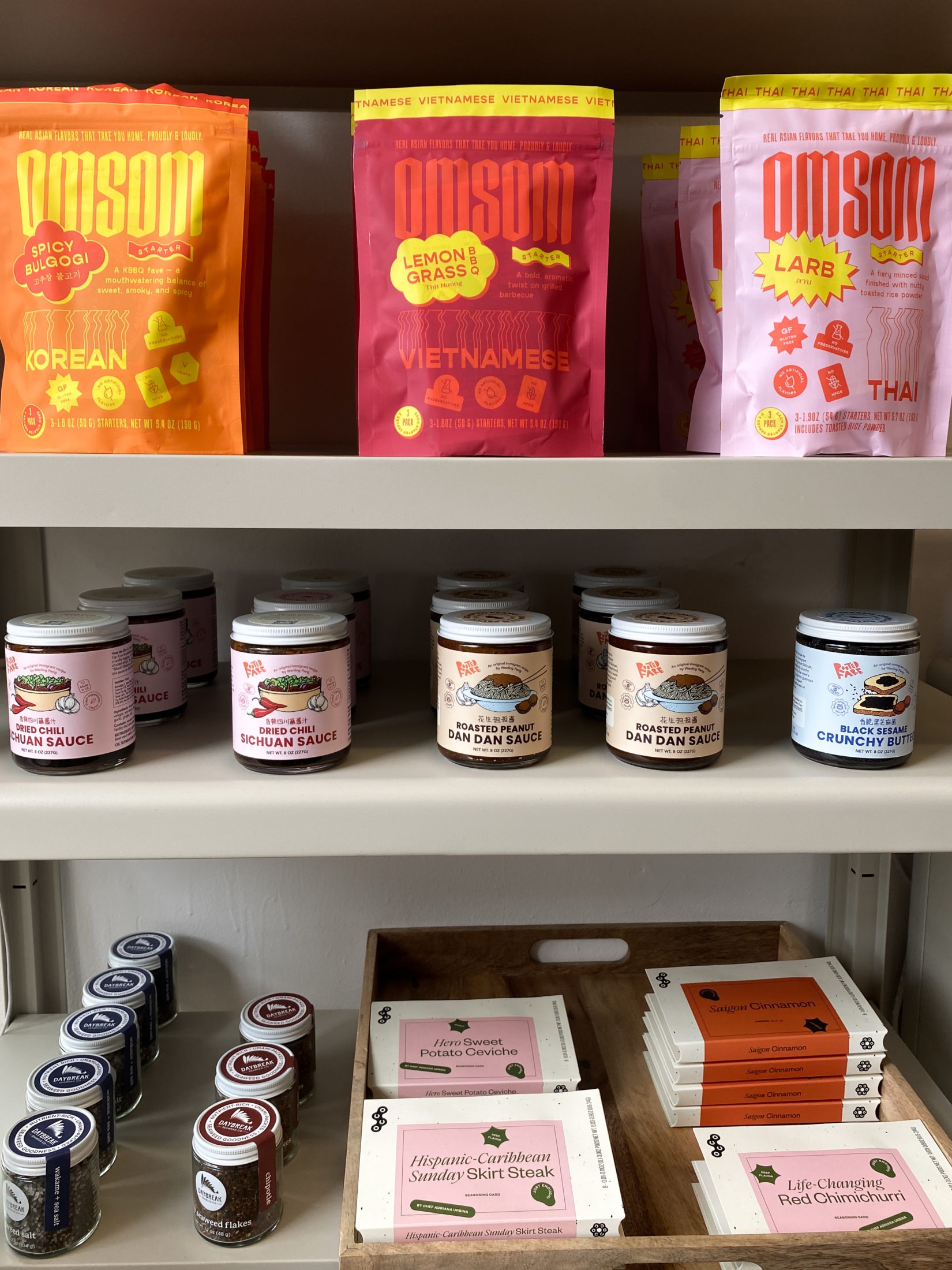
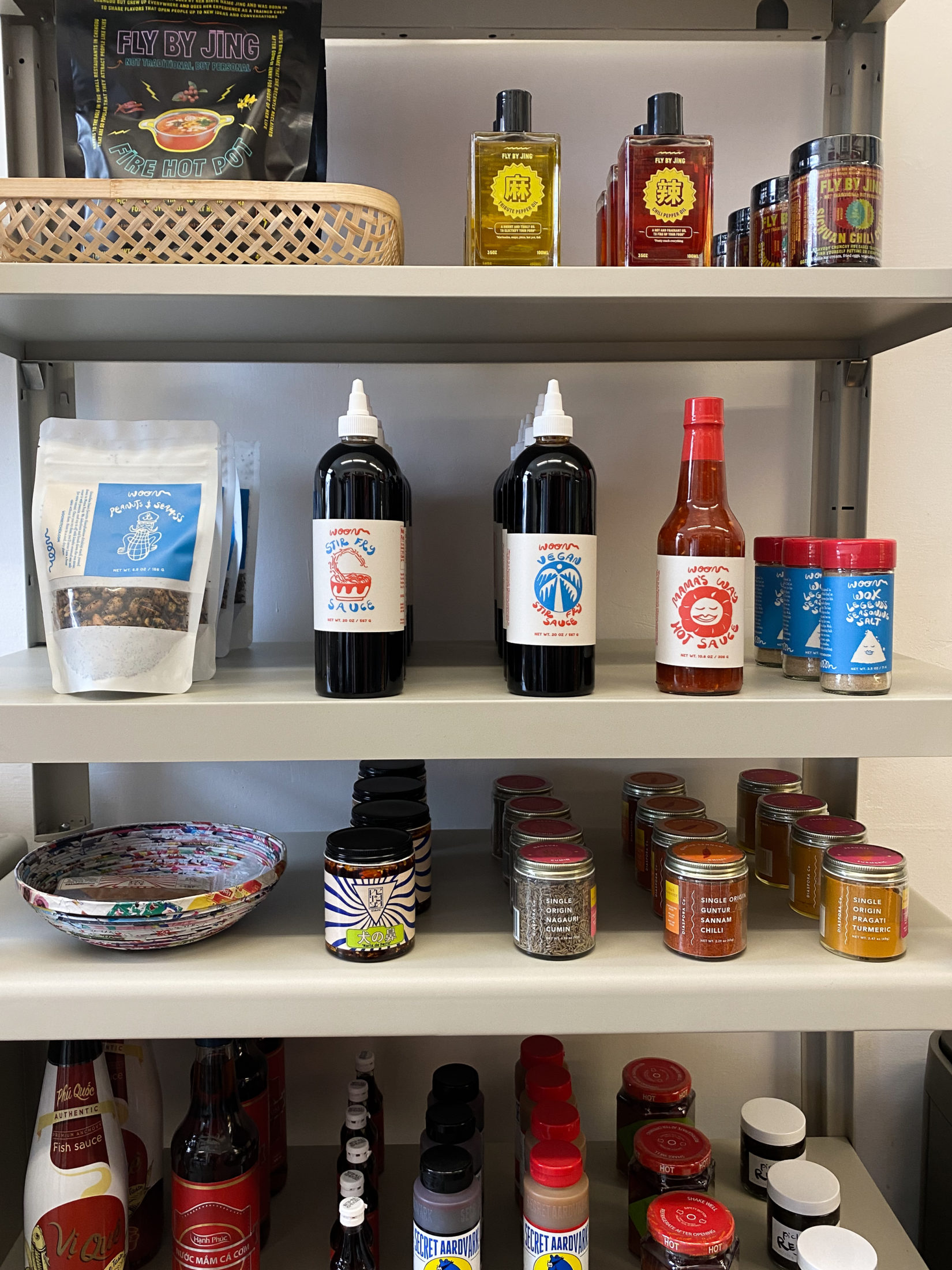
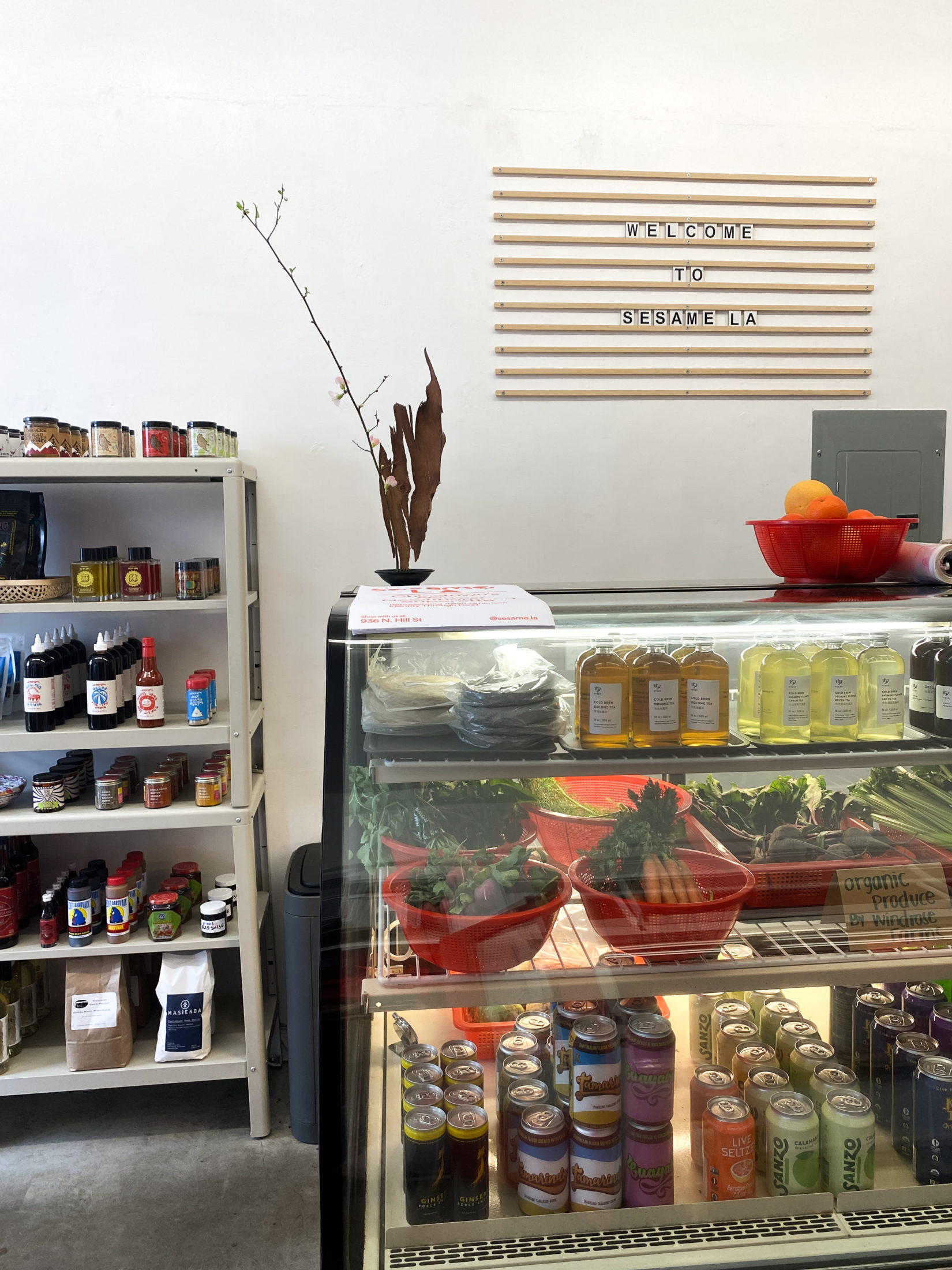
One suprette in Chinatown called Sesame LA stemmed out of the idea of nostalgia, whose founder, Linda Sivrican, talks about creating a market filled with childhood memories of her Asian heritage. While most mainstream markets have one “international” aisle with only the basics from each culture all put together on one long shelf, Sesame LA embraces the diverse Asian community of Los Angeles putting asian food at the forefront of her marketplace. Its a market dedicated to asian goods, and by asian makers. For those who grew up with such foods, its a store of comfort, while for someone like me, who discovered Asian food through ordering orange chicken, its a store full of discovery in the best way. Its filled with classics as well as new innovations such as Yuzu Mayo or the ever popular Omsom’s cooking seasonings, whose modern, bright and bold packaging makes a typically more traditional looking food category look trendy and cool. It is stores like this that are ahead of the trend of making non American marketplaces mainstream because the reality is we are living in a more and more diverse world, where eating hot dogs and hamburgers is not the norm, and more and more people are interested in trying different flavors from different cultures like gochujang, a Korean red chili paste.
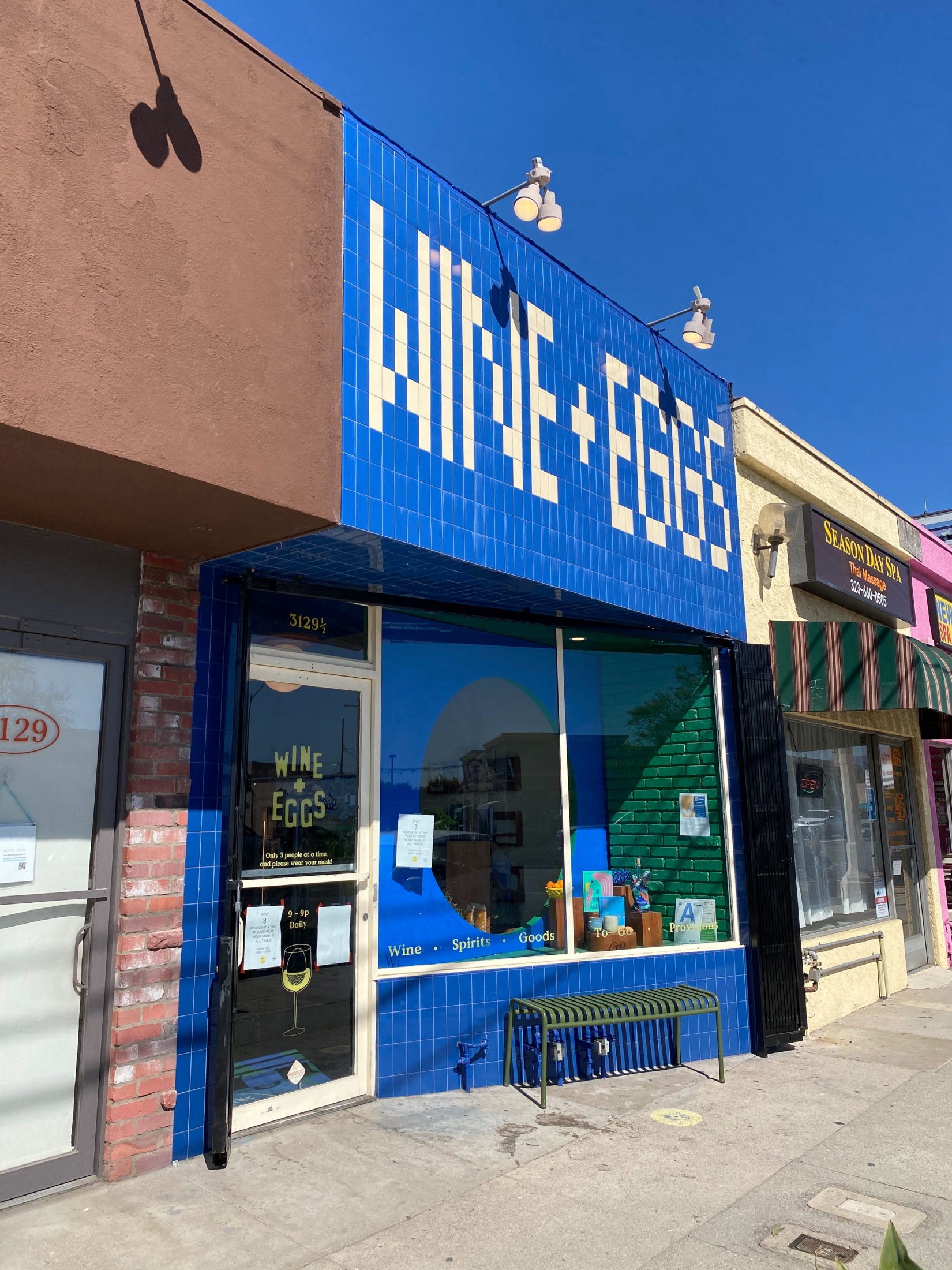
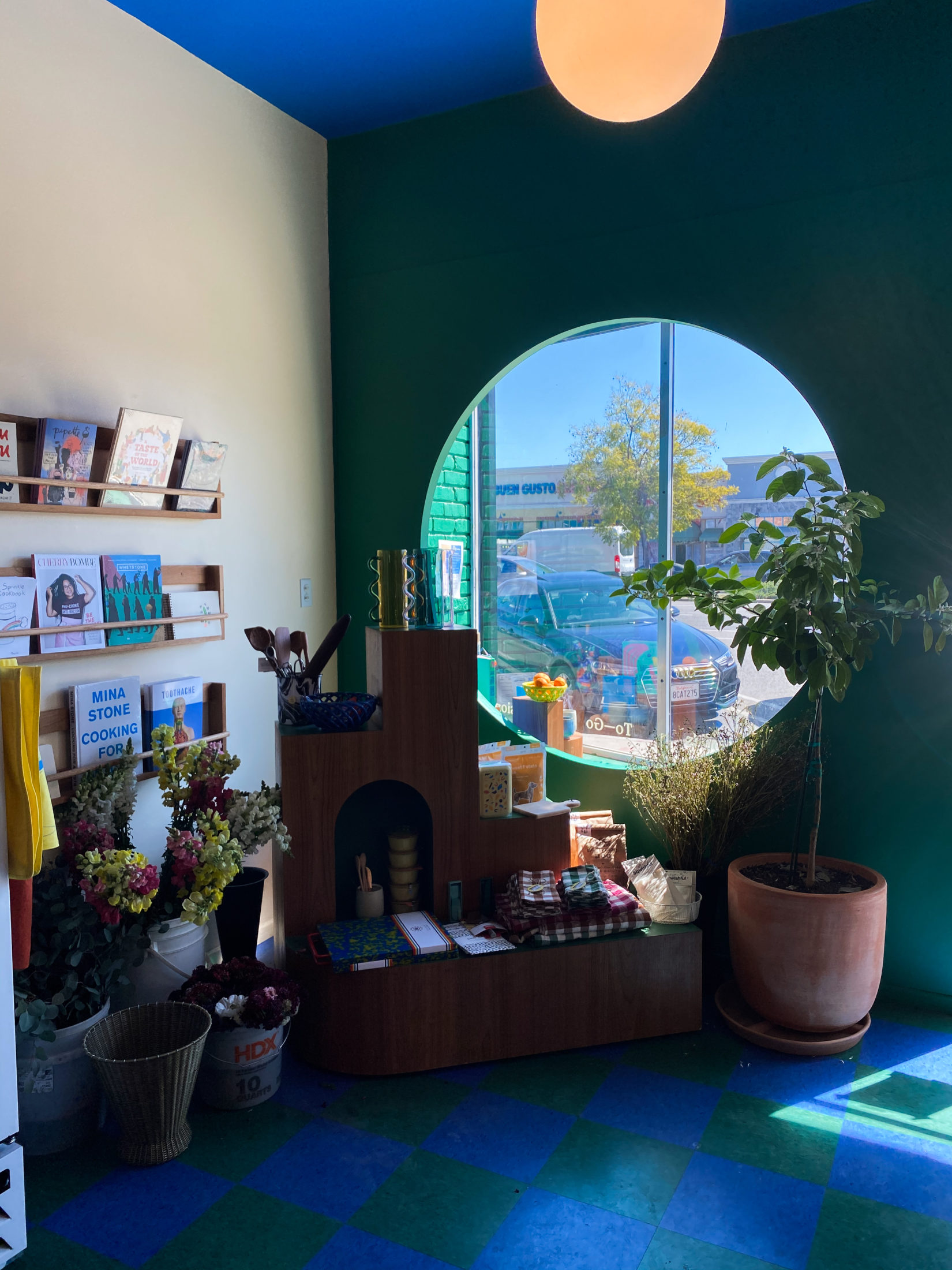
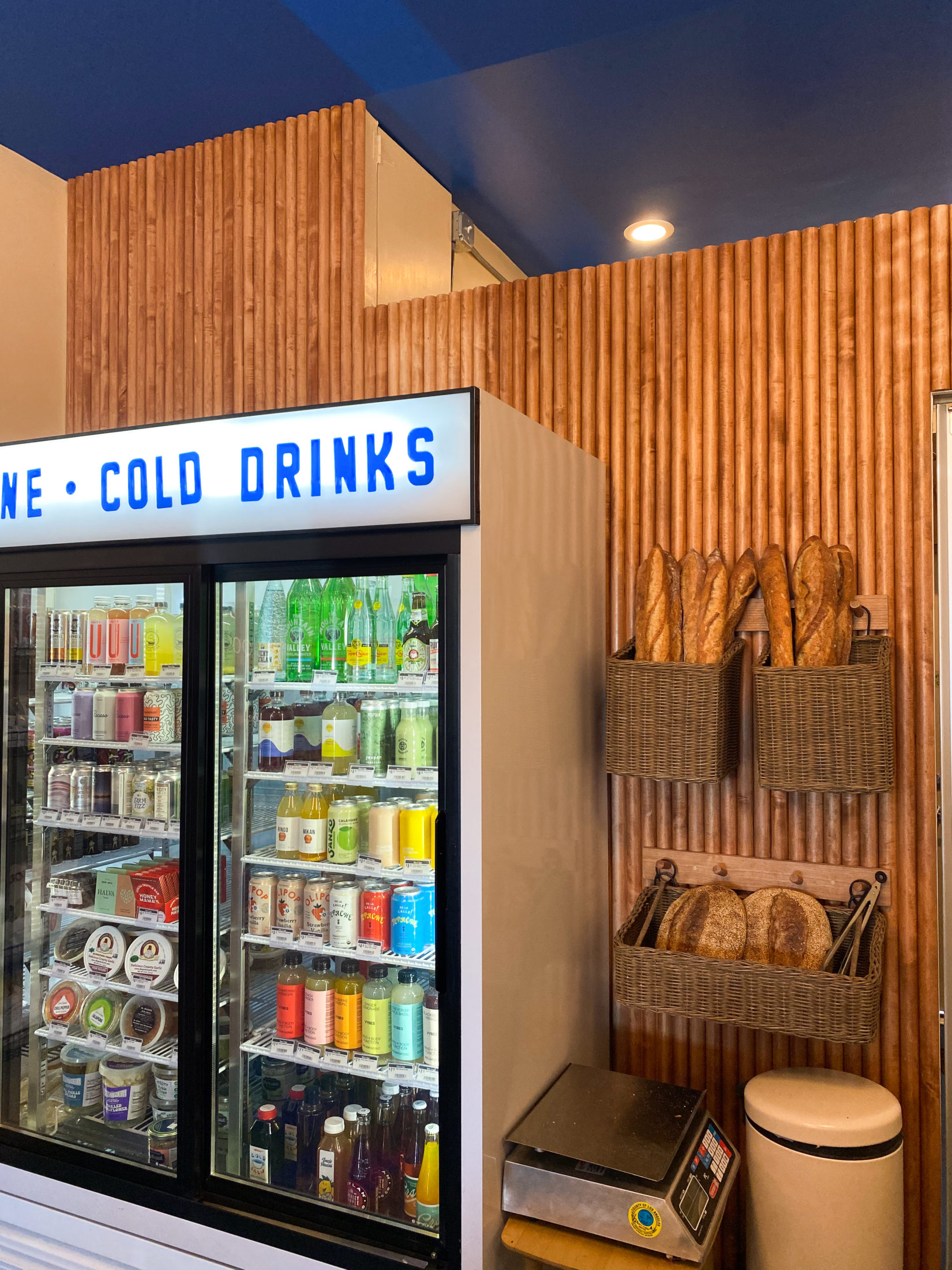
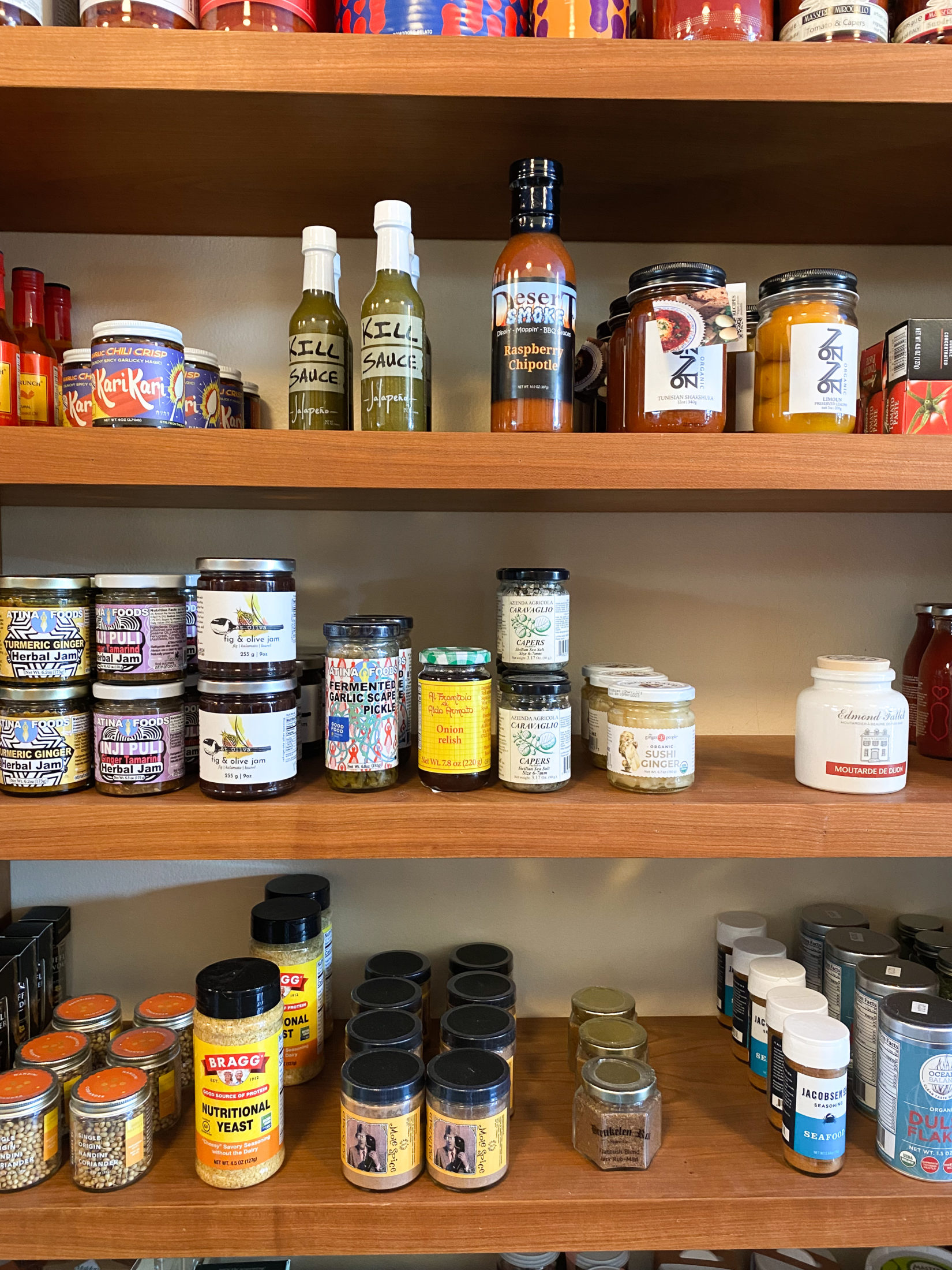
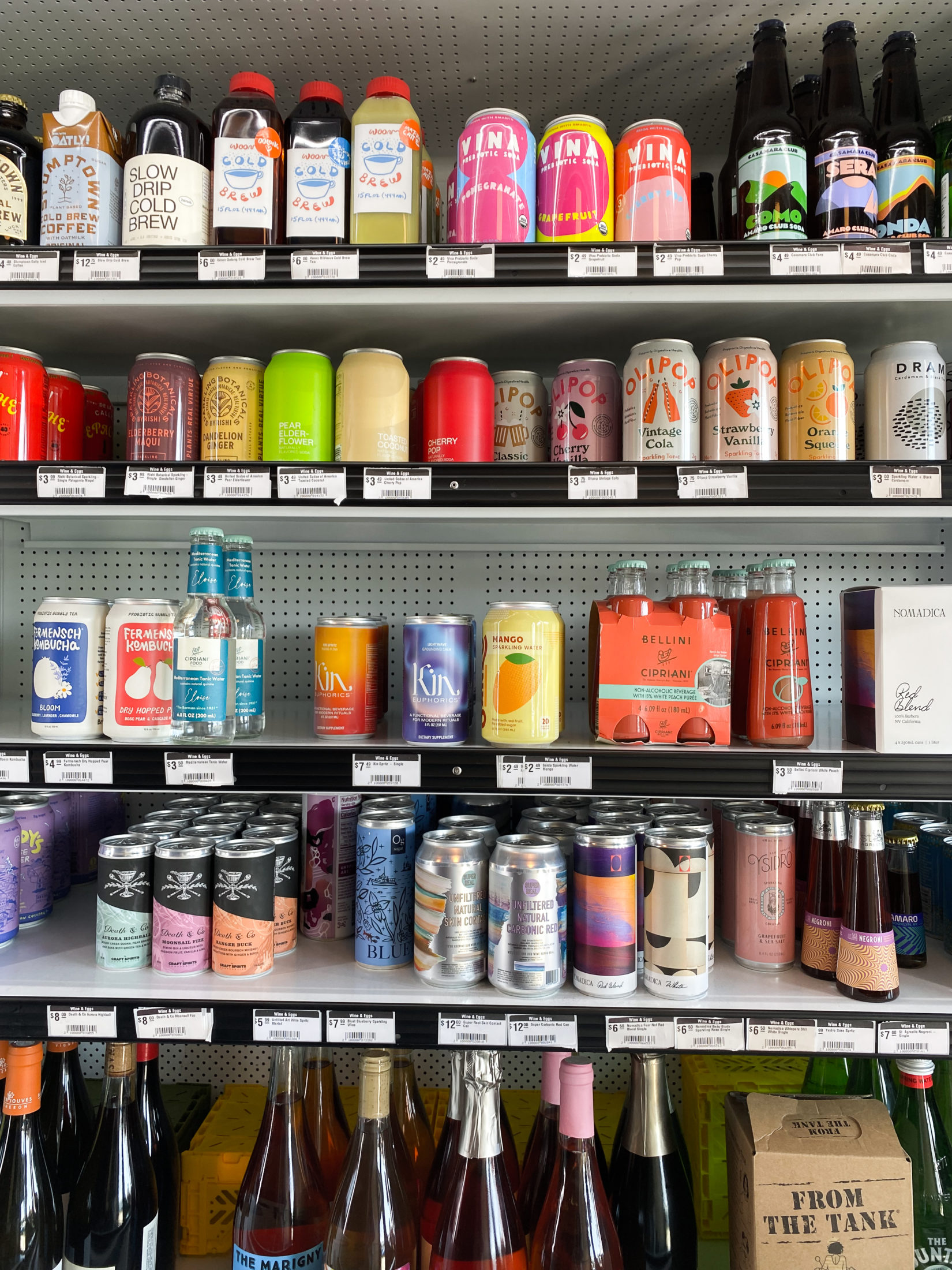
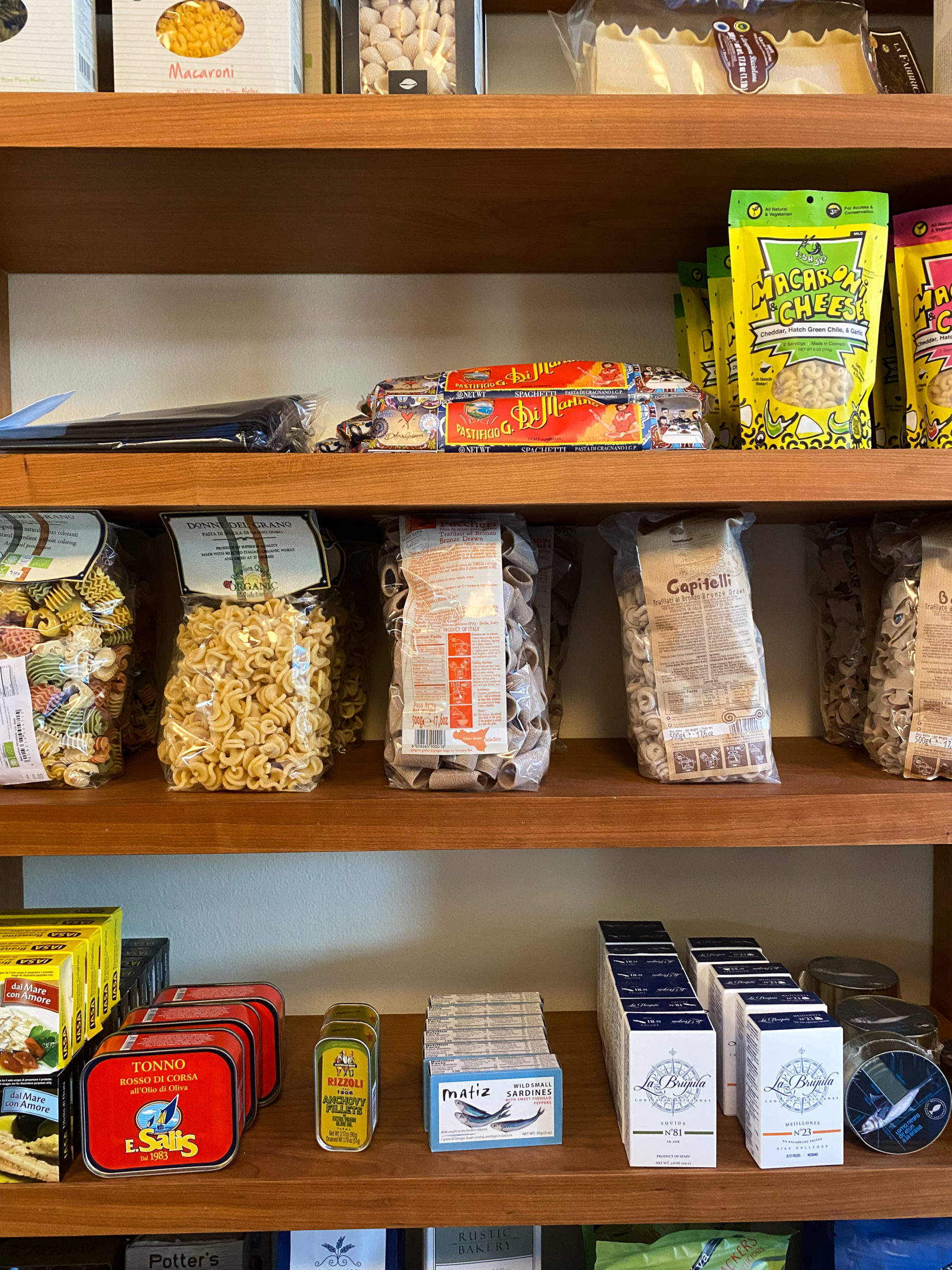
Another market was inspired by the idea of a small European grocery store where the space is designed to be timeless and classy. A place where the food is just as important as the aesthetic it is being purchased in. A designer’s dream is Wine + Eggs in Atwater, which feels almost like all the products are part of a gallery. Where even small design details matter, like the fact that the hanging lights are inspired by fried eggs, an homage to its name. It’s a store that people who don’t like grocery shopping can find enjoyment in. The name says it all – half liquor store, half grocery store, Wine + Eggs is filled with products similar to those one would find in an Erewhon, but on a much smaller scale. It also has a focus on local Los Angeles food makers like Fish Wives’ tinned fish, Awan’s vegan coconut based ice cream, Woon’s frozen Chinese dumplings, sauces and spices, and Burritos Las Palmas flour tortillas and frozen burritos. It shows just what a food Mecca Los Angeles, and the continuous creativity and innovation there is here within the industry.
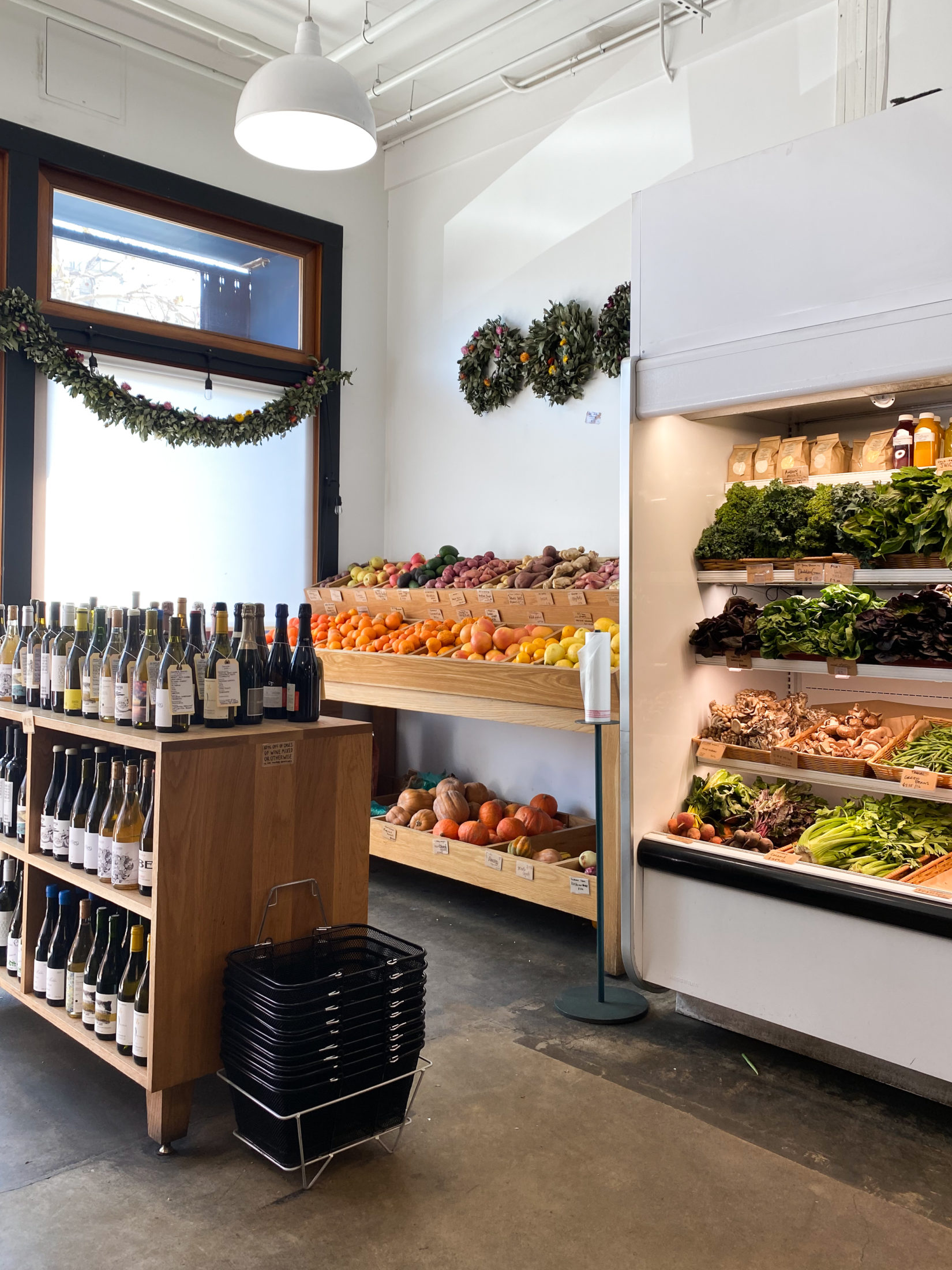
One of the earlier adapters, pre-pandemic, of this style of grocery store was Cookbook, with two locations in Echo Park and Highland Park. Cookbook highlights local farmers market produce, and high end pastas, cheese, meats, and other accoutrements, with a large natural wine selection at their Highland Park location. When you want to have a fancy dinner party this is the place to go. Its store design is kept minimal for the farmers market fresh and artisanal products to shine. It too, like all the stores mentioned are hyper curated to only sell the best of the best, which could be as niche as masa from a local corn producer Kernel of Truth or a beloved well-known staple product from like Kewpie Mayo. Taking note of such growth in popularity was famous Los Angeles chefs and restaurant owners Jon Shook and Vinny Dotolo, of Jon & Vinny restaurant group, who in May 2021 bought Cookbook to become part of their team of restaurants with the intention of maintaining the brand, while growing them long term.
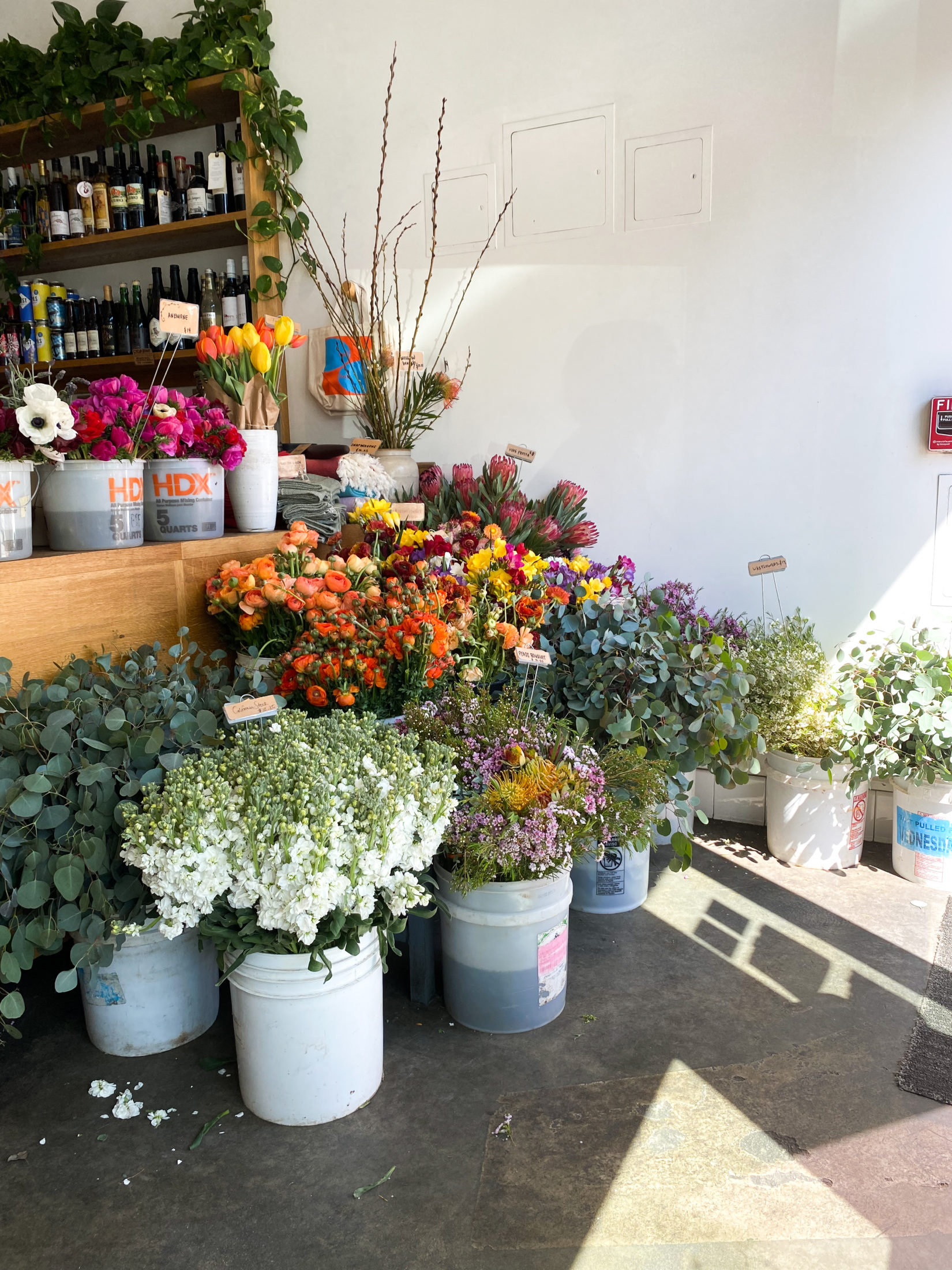
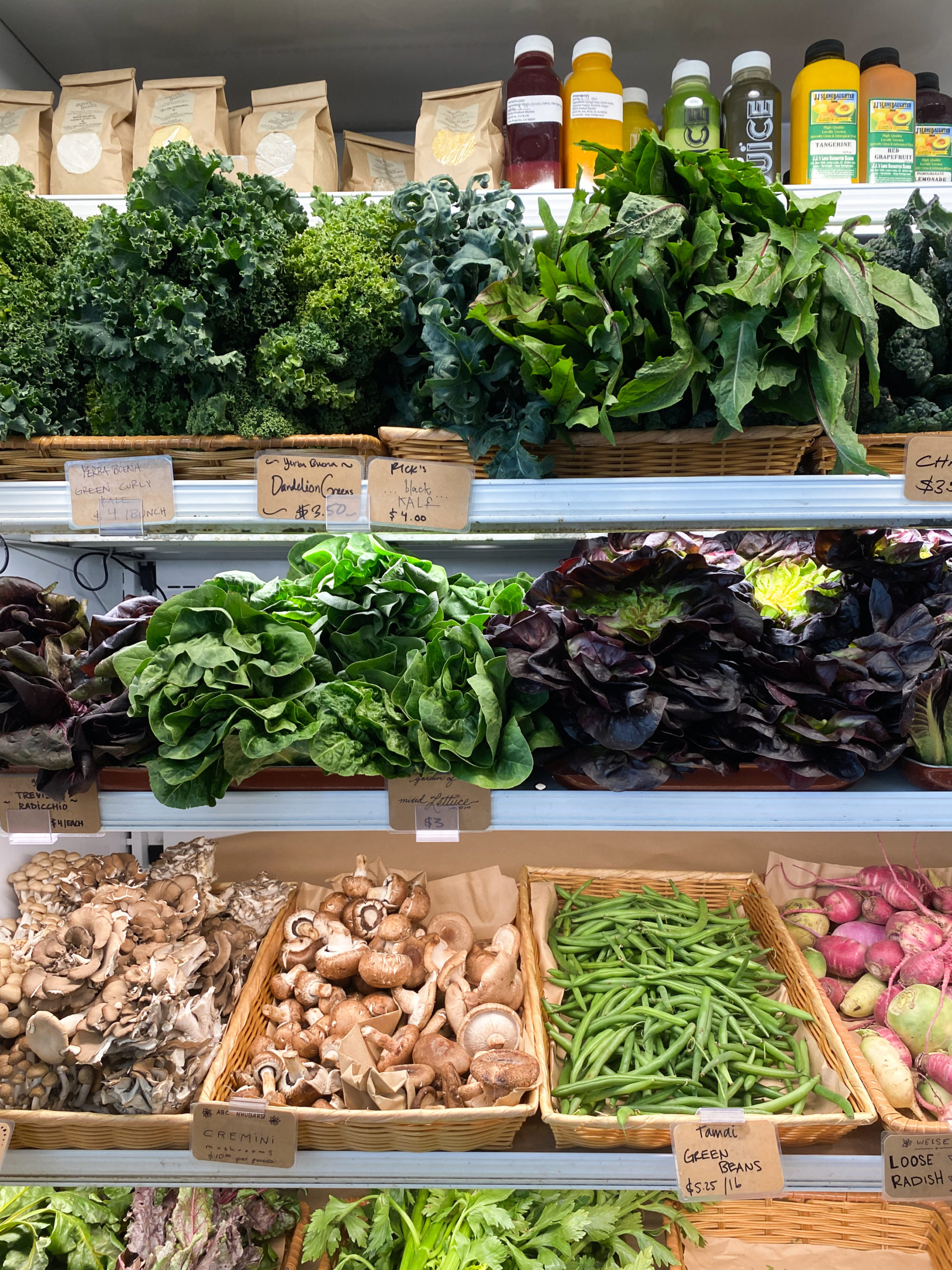
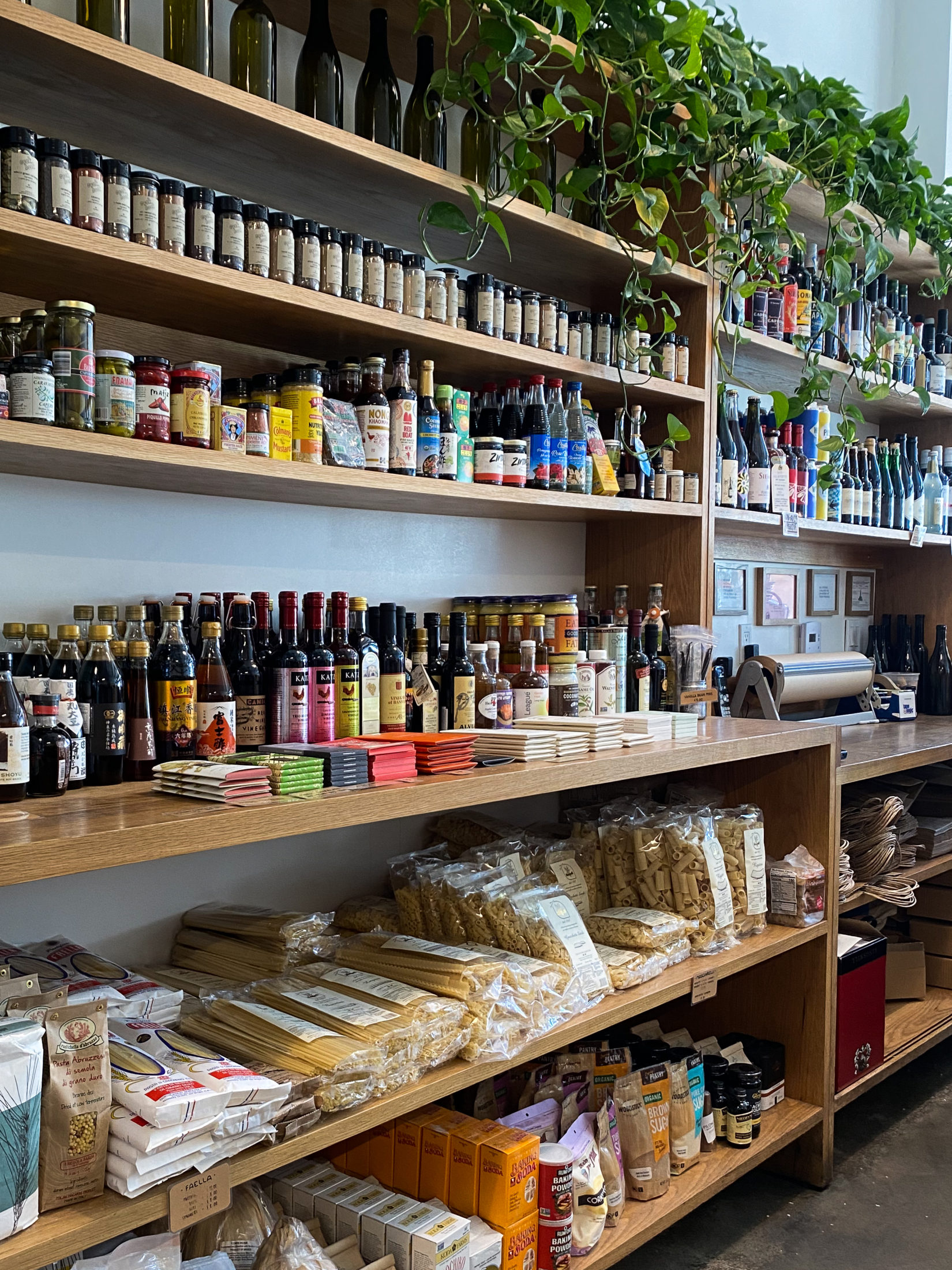
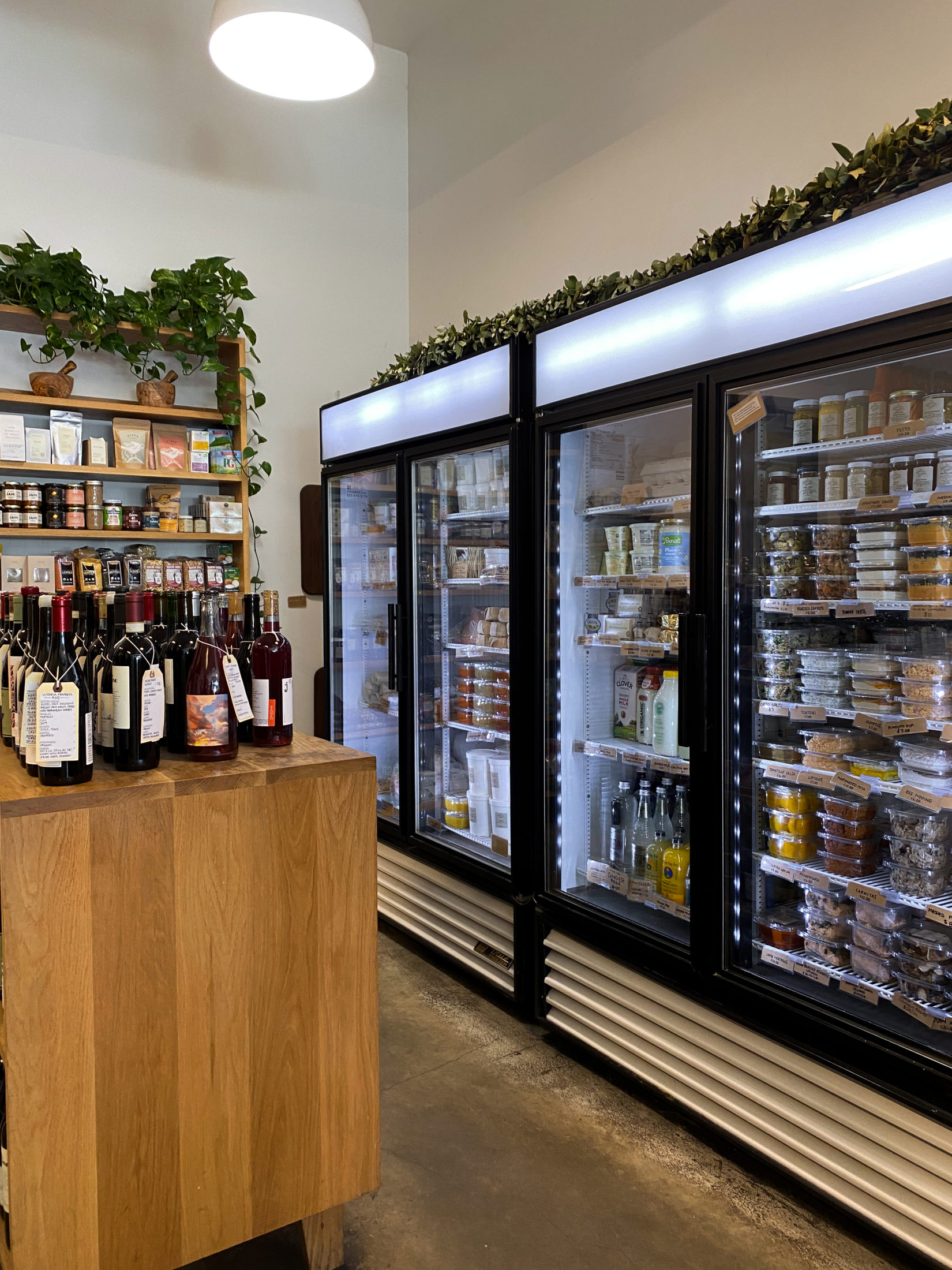
With such notice from influential Los Angeles industry people (enough to purchase), and more and more of this style of market popping up around Los Angeles, it begs the questions – is this new style of market going to become more mainstream or the new normal?
Here is a list of LA local small grocery stores to check out.
